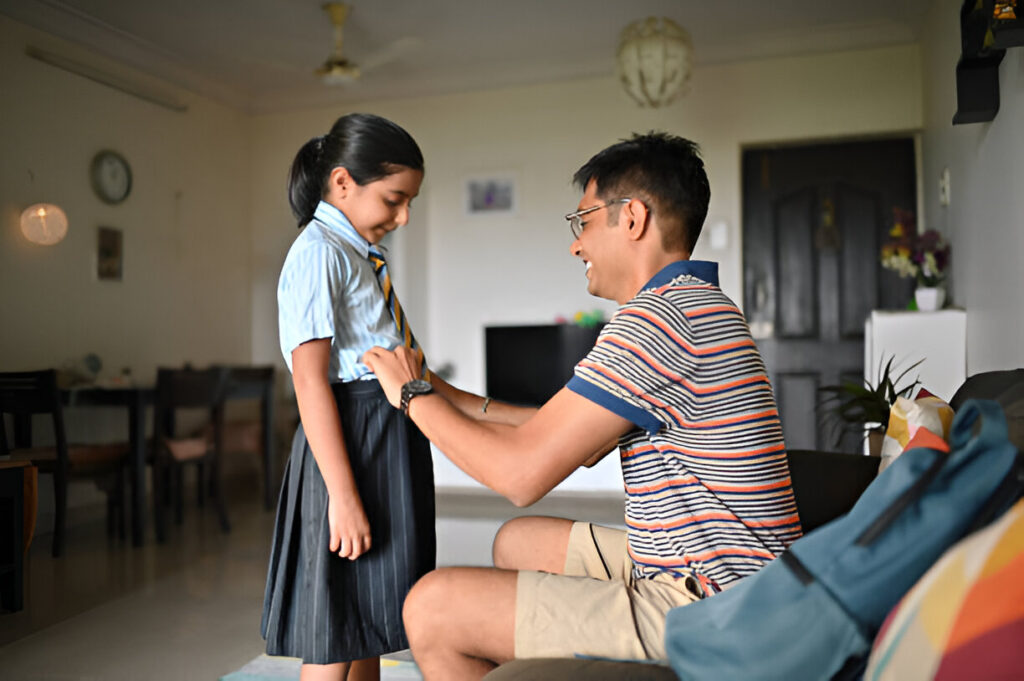In India, ensuring that girls receive a complete education requires more than just enrollment in schools. Parents play a pivotal role in whether or not their daughters can stay in school, especially in underprivileged communities. Parental support programs are a critical, yet often overlooked, aspect of keeping girls in school, fostering an environment where education is prioritized.

The Education Gap for Girls in India: Key Statistics
India’s gender gap in education remains wide, despite improvements in literacy rates. According to the Annual Status of Education Report (ASER) 2022, about 13.5% of girls aged 11-14 years in rural India were out of school, a significant number in a country with a female literacy rate of 70.3% (2021). Moreover, 44% of girls drop out by the time they reach secondary education. Parental attitudes toward education, shaped by societal norms, child marriage, and economic factors, are significant drivers behind this drop.
The Role of Parental Support in Girls’ Education
Parental support programs in India aim to tackle these barriers by directly addressing parents’ concerns and mindsets about educating their daughters. Research from the International Center for Research on Women (ICRW) found that involving parents in school-related decisions increases girls’ retention rates by 20-25%. These programs work to improve parents’ understanding of the long-term benefits of educating their daughters—benefits that go beyond economic gain and include better health outcomes, later marriage ages, and increased political and social participation for girls.
Key Benefits of Parental Support Programs
- Reduction in Dropout Rates Studies indicate that one of the leading causes of high dropout rates among girls in India is a lack of parental support. A study by the World Bank revealed that girls with supportive parents were three times more likely to complete secondary education. Parental support programs, which often involve educating families on the advantages of education, drastically reduce the risk of girls dropping out due to early marriage or household responsibilities.
- Improved Academic Performance When parents actively engage in their children’s education, it significantly impacts their academic outcomes. According to research by UNICEF India, girls whose parents participate in school activities and monitor their progress tend to have better attendance and higher test scores. Parental involvement ensures that education is a family priority, which can translate into higher retention rates and improved academic performance.
- Empowerment Through Awareness Parents, especially in rural areas, are often unaware of the full benefits of educating their daughters. Programs like the GirlsFirst Foundation provide workshops and counseling sessions to parents, where they are educated on how schooling can lead to better job opportunities, improved quality of life, and higher earnings for women. A report by UNESCO highlights that an additional year of schooling for girls can boost their lifetime earnings by 10-20%, which also positively impacts family income and welfare.
- Breaking Gender Norms Traditional gender norms often dictate that girls should prioritize household chores or marriage over education. Parental support programs are essential in challenging and transforming these norms. For example, a 2021 study by the Azim Premji Foundation found that girls in districts where these programs were active saw a 22% increase in school attendance, as parents began to recognize the value of their daughters’ education.
- Building a Supportive Community These programs don’t just target individual parents but also work to build community awareness. The Government of India’s Beti Bachao Beti Padhao (Save the Girl Child, Educate the Girl Child) campaign includes outreach programs that involve local leaders and community groups. Engaging parents at a community level helps reduce resistance to change, creating a broader culture of support for girls’ education.
Case Studies: Successful Parental Support Programs
The Kasturba Gandhi Balika Vidyalaya (KGBV) initiative, a government-run residential school for disadvantaged girls, includes parent-teacher meetings and counseling. A 2019 study found that 85% of the parents involved in KGBV programs were more likely to prioritize their daughters’ education over marriage, illustrating the long-term impact of parental involvement.
Conclusion: The Need for Expanding Parental Support Programs
In conclusion, keeping girls in school requires active participation from parents. Parental support programs are instrumental in overcoming the social and economic barriers that often prevent girls from completing their education. Programs that educate and empower parents to see the value in their daughters’ education have proven successful, as demonstrated by the increased retention rates and community-wide shifts in attitudes.
If India is to close the education gap for girls, it’s crucial to scale up parental support programs, making them an integral part of the educational framework. A multi-faceted approach involving government initiatives, NGOs like GirlsFirst Foundation, and community outreach can ensure that girls not only attend school but thrive in their educational journeys.
